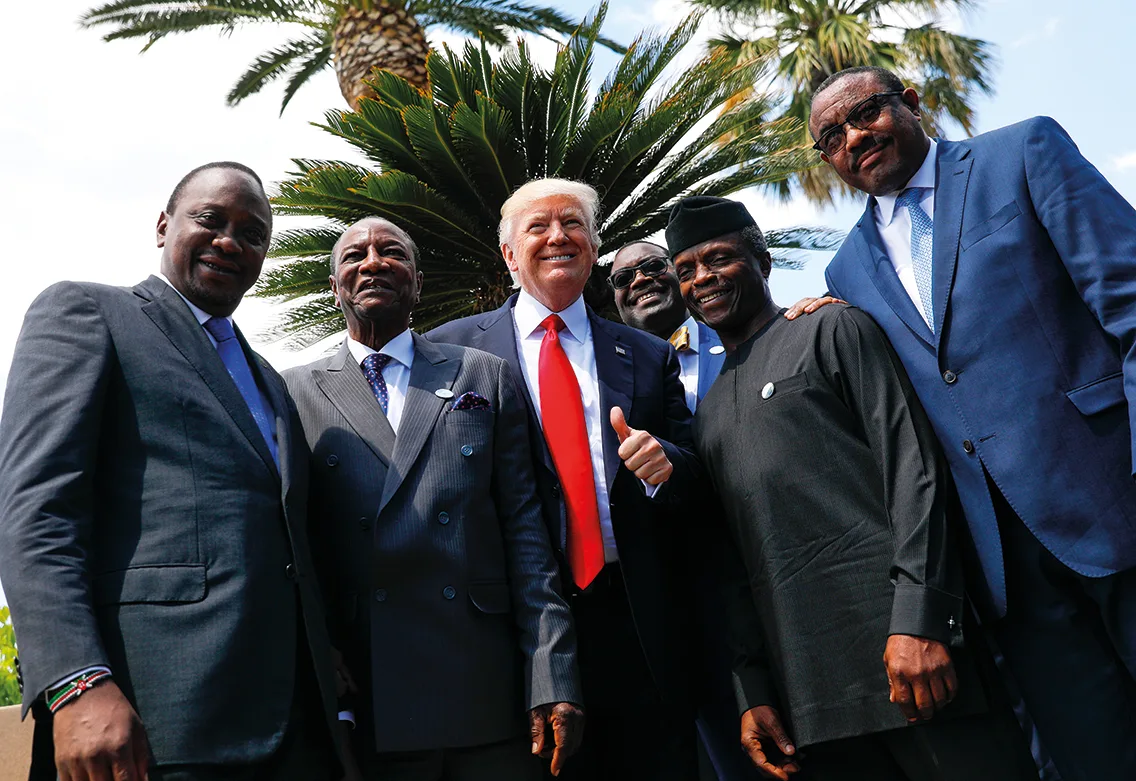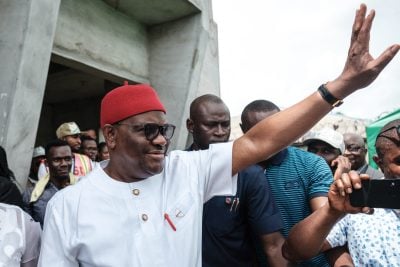Donald Trump is back. In the Republican primaries in Iowa and New Hampshire in January, the former US president easily swept aside his rivals and took a huge stride towards securing his party’s nomination. All that stands between him and a rematch with President Joe Biden is Nikki Haley, the former US ambassador to the UN, who most pundits give little chance of resisting for long. Pollsters give Trump every chance of harnessing his primary momentum in a victorious push for the White House. For Africa, that is dispiriting news. Trump famously dismissed some of the continent’s nations as “sh*thole countries”.
Disengagement went beyond tactless comments. While Trump saw Africa as an arena for US competition with China, key diplomatic posts in Africa went unfilled and he failed to visit the continent. His attempts to limit Muslim immigration into the US discriminated against several African nations.
The verdict of the commentariat was predictably dim – “derisive, dismissive, disrespectful” was one analyst’s pithy survey of relations. Yet even Trump’s critics conceded that behind the crass exterior and shocking faux pas, the outgoing president’s transactional instincts shaped the outlines of an African commercial strategy that Biden has built upon.
In 2018 Trump signed into law the Better Utilization of Investments Leading to Development (BUILD) Act, which established the United States International Development Finance Corporation (DFC) as a new development bank to invest in sectors across the emerging world – including energy, healthcare, infrastructure, and technology. The Act gave DFC a lending capacity of $60bn, double that of its forerunner, the Overseas Private Investment Corporation. And, indeed, in the last four years the Biden administration has followed in those footsteps.
Biden has followed up Trump’s plans
In December 2022 Washington DC played host to the US-Africa Leaders Summit, which featured delegations from 49 invited African countries and the African Union, alongside civil society and the private sector. The event included a business forum as the US looked to again ramp up trade ties with the continent that have fallen well behind those that Africa enjoys with China.
In a December 2023 update, a year after the summit, the United States claimed it had since supported and helped close 547 new deals for a total estimated value of $14.2bn in new two-way trade and investment. In May 2023, Biden chose Africa for the first and flagship economic corridor under his signature $600bn Partnership for Global Infrastructure and Investment initiative to address the global infrastructure gap. That has enabled investments of $1.5bn in the strategically vital Lobito Corridor from the Zambian Copperbelt to Angola, described by the US as “the most significant transport infrastructure that the US has helped develop on the African continent in a generation”.
Partnership amid strained relations
True, relations have not always been smooth under Biden. The President has not been afraid to exclude countries from the tariff-free African Growth and Opportunity Act (AGOA) when the US deems them to have backslid on human rights and democracy. Ethiopia was removed at the start of 2022 amid its disastrous war in Tigray.
Relations have been similarly strained with South Africa, with the US complaining of that country’s support for Russia in its war in Ukraine.
Nevertheless, the tone has generally been warm and constructive. In January, Anthony Blinken, Biden’s secretary of state, kicked off a four-nation tour of Cabo Verde, Côte d’Ivoire, Nigeria, and Angola. “The future really is with Africa… we would ignore Africa at our peril. But we also see the incredible power of these partnerships in actually solving problems together,” he told a ribbon-cutting ceremony in Lagos.
It’s hard to imagine those words from Trump. But with “the Donald” seemingly in the ascendancy, and a reprise of his “America First” rhetoric on the cards, African policymakers should brace themselves for the return of a purely transactional relationship.
Want to continue reading? Subscribe today.
You've read all your free articles for this month! Subscribe now to enjoy full access to our content.
Digital Monthly
£8.00 / month
Receive full unlimited access to our articles, opinions, podcasts and more.
Digital Yearly
£70.00 / year
Our best value offer - save £26 and gain access to all of our digital content for an entire year!

 Sign in with Google
Sign in with Google 



